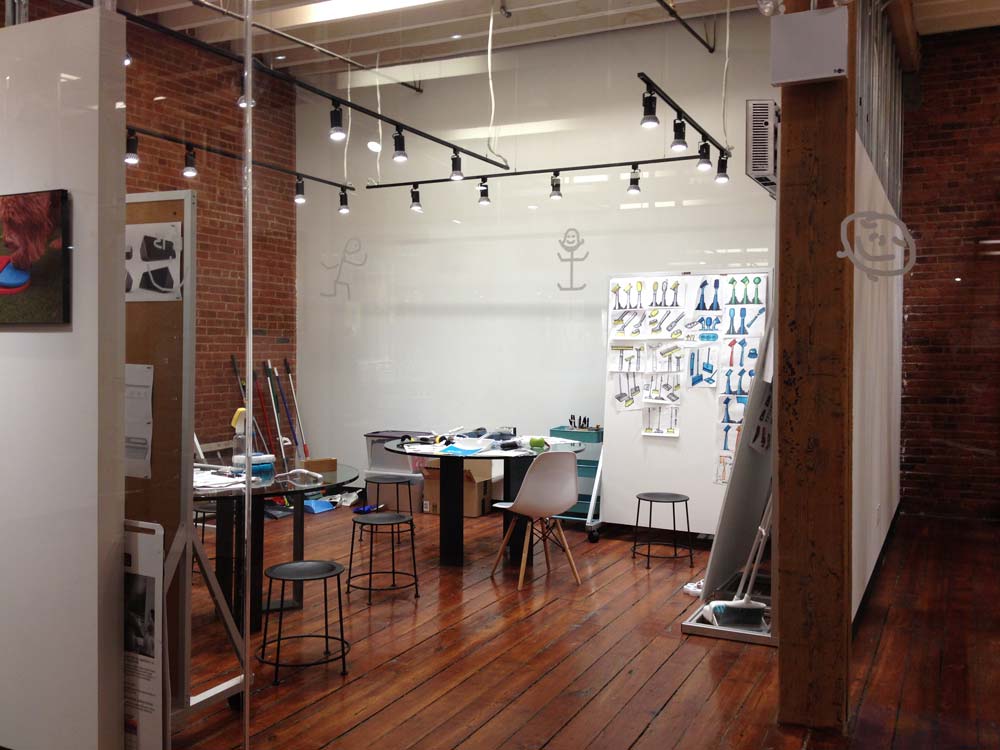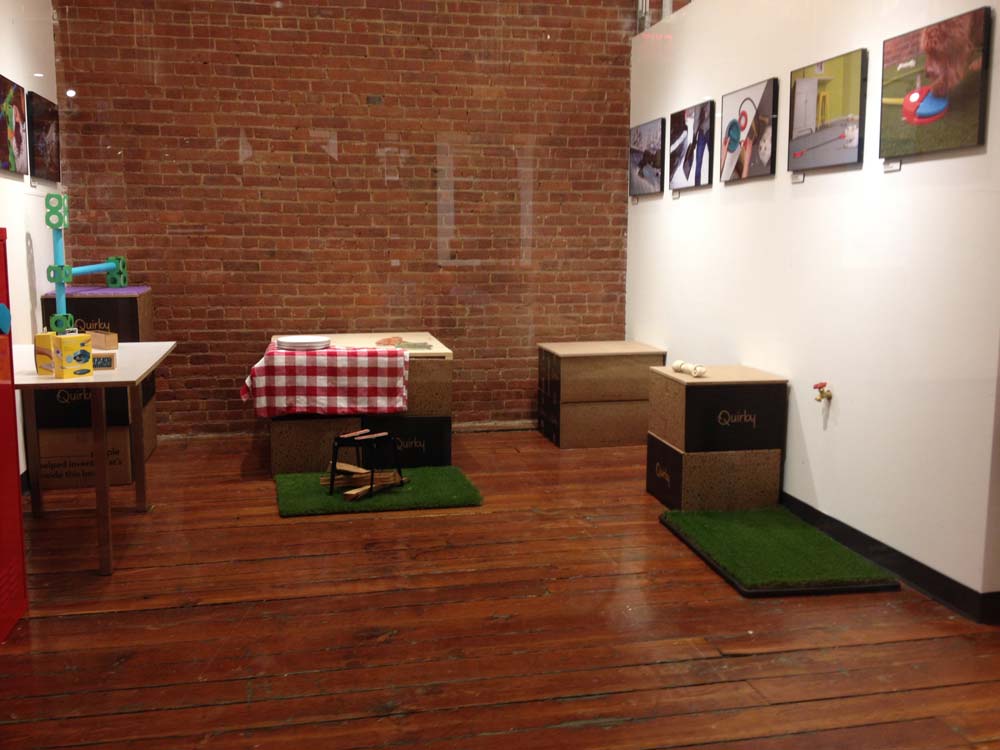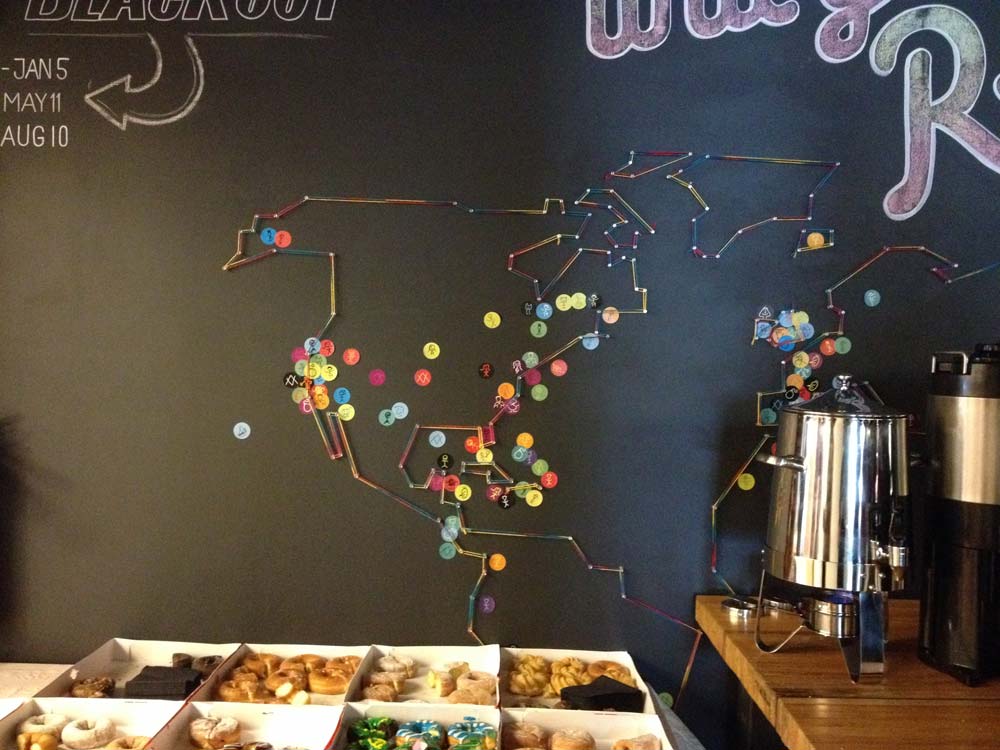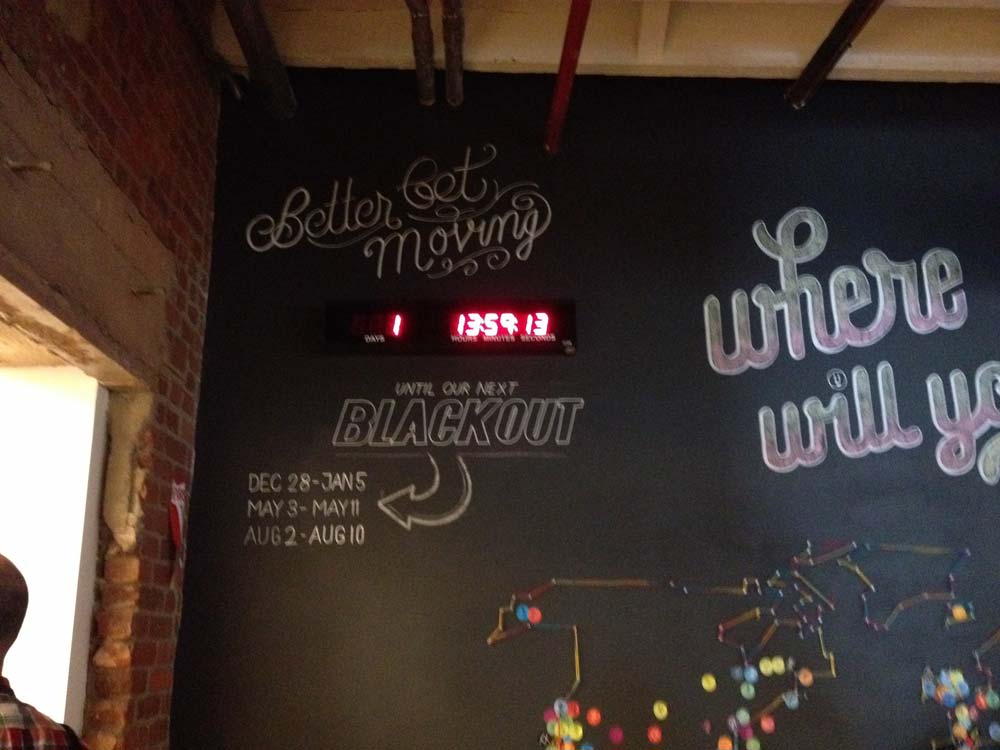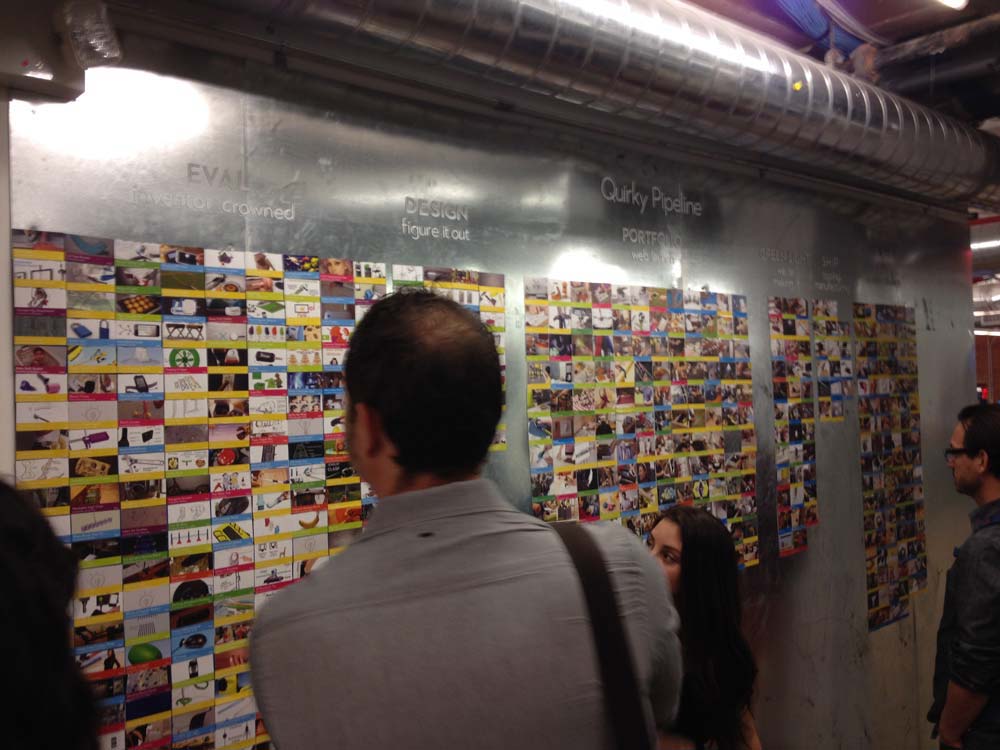A group of 99u attendees had a visit with Ben Kaufman, the CEO/founder of product development company Quirky, who gave us a look into how his company uses crowd-sourcing to deliver products. Here are some of my notes from that visit. More 99u notes to follow.
Kaufman got his start as an inventor in high school when he made a lanyard to hold an iPod shuffle. The company he started to ship this product later morphed into Mophie, the maker of the JuiceBox battery case. He later sold that company to start Quirky. His wanted to take all of the pain and learning he went through designing, developing and shipping a product to the masses, so that anyone with a great idea could become an inventor and let someone else handle the rest.
Their mission is to "Make invention accessible." What they do beyond helping people see if their ideas are unique and viable, is provide an infrastructure and experts for the entire process of design, development, marketing, and fulfillment.
Kaufman began his talk with a story comparing the Empire State Building, which took 410 days to complete, with a potato peeler that took 3 years to complete. His point is that having more time to deliver a product doesn't always lead to better quality. Quirky works in 11 week sprints, and ships 3 new crowd-sourced products every week. To further make his point, he talked about the difference between invention vs. tweaking, and had us look back 100 years ago to the Model T, which gave us a 17mpg automobile in 1909. Fast forward to 2009, and the most popular truck, a Ford, is giving us 16 MPG.
Quirky makes it possible for anyone to submit ideas. They're known for helping a teenager bring Pivot Power, a flexing power strip, to the world and making the inventor over a million dollars. Now their intellectual property partnership with GE has allowed them to bring someone's idea about making air conditioners smarter to save the world's energy into a reality too. He gave us a look at how the company and their extensive community selects products for manufacturing using weekly community meetings, their web site to manage the decision-making and evolution of ideas. They have an open community-driven selection process. Somehow the Hollywood pitch in my mind is product development shop meets American Idol. They even use a bit of game mechanics to drive product name selection. The profits are shared among everyone who participates in the process.
Their founder's passion and company culture feel genuine. They believe in their people, and in no-bullshit core values. I can't recall what all of their 5 core values were, but among them were impatience, agility, and getting shit done. They actually use those for evaluation. It was great to get a peek into how they take ideas that we're familiar with in software development, and push them to the limit in manufacturing. They change the status quo and what's the most interesting part is not so much their output (and their fantastic prototyping facility), but how they're running a business with so many projects constantly running and so many products shipping given the real world obstacles in manufacturing, which accounts for the slow pace at which the world usually delivers products.
In addition to the 11 week sprints, they have 3 blackout periods where they close the offices entirely and no one works. No one even answers the phones. They have a big office party the night before every blackout starts (blackout before the blackout I guess). They don't have set vacation day policies, but everyone is expected to take 3-4 weeks of time off.
Takeaways:
- Utilize constraints and speed to push product quality
- Rely on the wisdom of community
- Believe and value your people—passion is intrinsic to culture
See also these tips from Kaufman for rapid iteration.
https://www.quirky.com/
